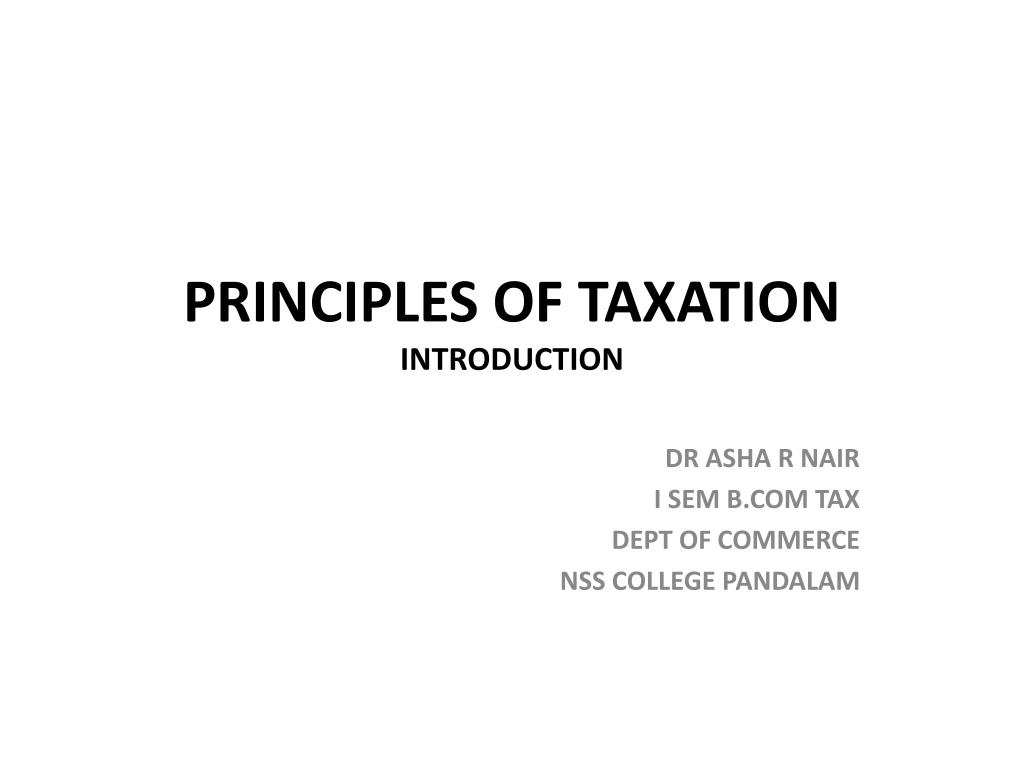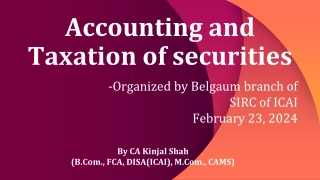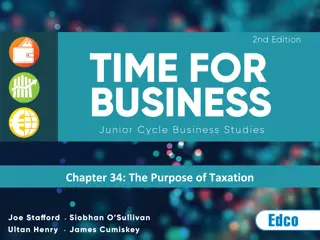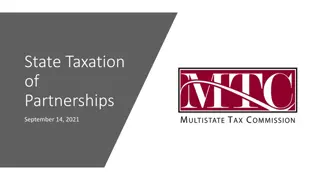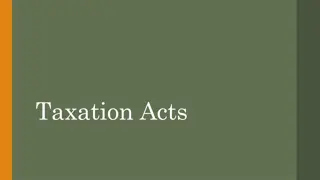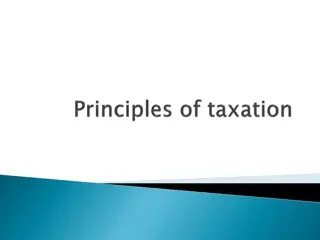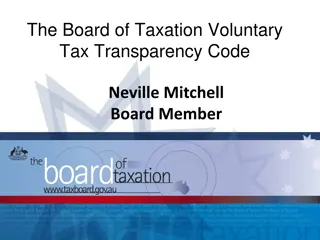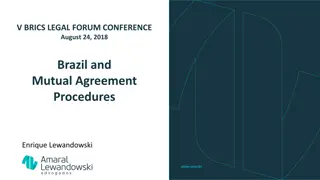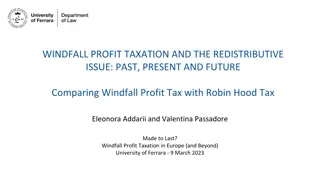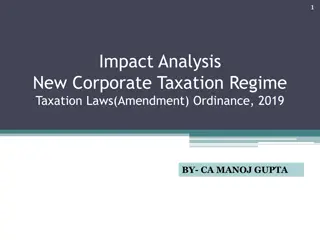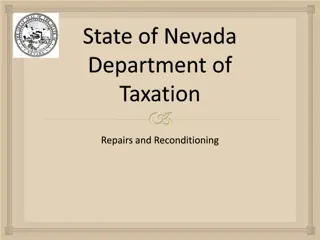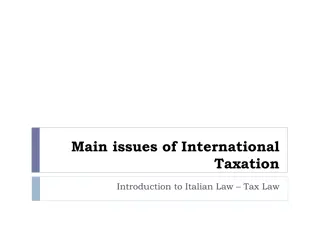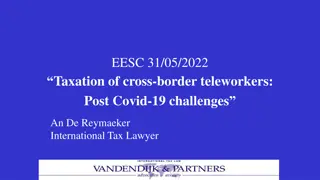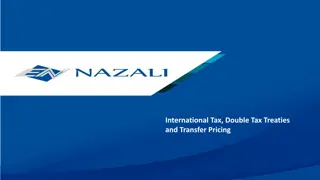Understanding Principles of Taxation
Principles of taxation, including concepts such as public revenue, sources of revenue, types of taxes (direct and indirect), and non-tax revenue, are essential for students of commerce to grasp. Taxation serves as a means for the government to collect revenue for the common good through compulsory contributions from individuals and organizations. Explore the classification, features, and significance of taxes in financing public administration.
Download Presentation

Please find below an Image/Link to download the presentation.
The content on the website is provided AS IS for your information and personal use only. It may not be sold, licensed, or shared on other websites without obtaining consent from the author. Download presentation by click this link. If you encounter any issues during the download, it is possible that the publisher has removed the file from their server.
E N D
Presentation Transcript
PRINCIPLES OF TAXATION INTRODUCTION DR ASHA R NAIR I SEM B.COM TAX DEPT OF COMMERCE NSS COLLEGE PANDALAM
PUBLIC REVENUE Public revenue is the total earnings or income realised by the government for the purpose of financing public administration the income of the government through all sources like taxes, borrowings, fees, donations etc is called public revenue or public income
SOURCES OF PUBLIC REVENUE The main sources of public revenue can be classified into two:- Tax revenue Non tax revenue
Tax Tax is a compulsory extraction of money from the people by an authority, to be spend for the common benefit of the society Definition According to Bastable , a tax as a compulsory contribution of a wealth of a person or body of persons for the service of public power
FEATURES OF TAX Tax is a compulsory payment and hence refusal to pay tax is a punishable offence There is no direct quid-pro-quo (something in return) between the tax payer and tax imposing authority. Tax is a payment for an indirect service to be rented by the government to the community. The amount of payment of tax are determined from time to time by the tax imposing authority.
CLASSIFICATION OF TAX TAX INDIRECT TAX DIRECT TAX
DIRECT TAX When tax is levied on a person directly and he himself pays the amount to the authorities is called direct tax. In other words, there is no intermediary between the tax payer and the government in case of direct taxes. Eg: Income Tax , Wealth Tax
INDIRECT TAX Indirect tax is paid by the tax payer through an intermediary. In other words the government collects indirect taxes from people through the intermediaries like traders, service providers etc. Eg: Sales tax, Excise duty, customs duty
NON-TAX REVENUE Non-Tax Revenue COMMERCIAL REVENUUE/PR ICE FINES AND PENALTY GIFTS AND GRANTS FEES
COMMERCIAL REVENUE /PRICE :- Revenues which are derived by the government from public enterprises by selling their goods or commodities FEES :- Fees is charged for the consideration of services rented. Thus fees has quid-pro-quo and the amount of fee depends upon the cost of services rented. eg : license fee, registration fee
FINES AND PENALITY:- Fines and penalities are imposed as punishment for the violation of law or non- complainance of rules and regulations GIFTS AND GRANTS :- Gifts are voluntary contribution from private individuals or non government donors to the government fund for special purpose Grant is a sum of money given as assistance by the government or other organisaton for a particular purpose
